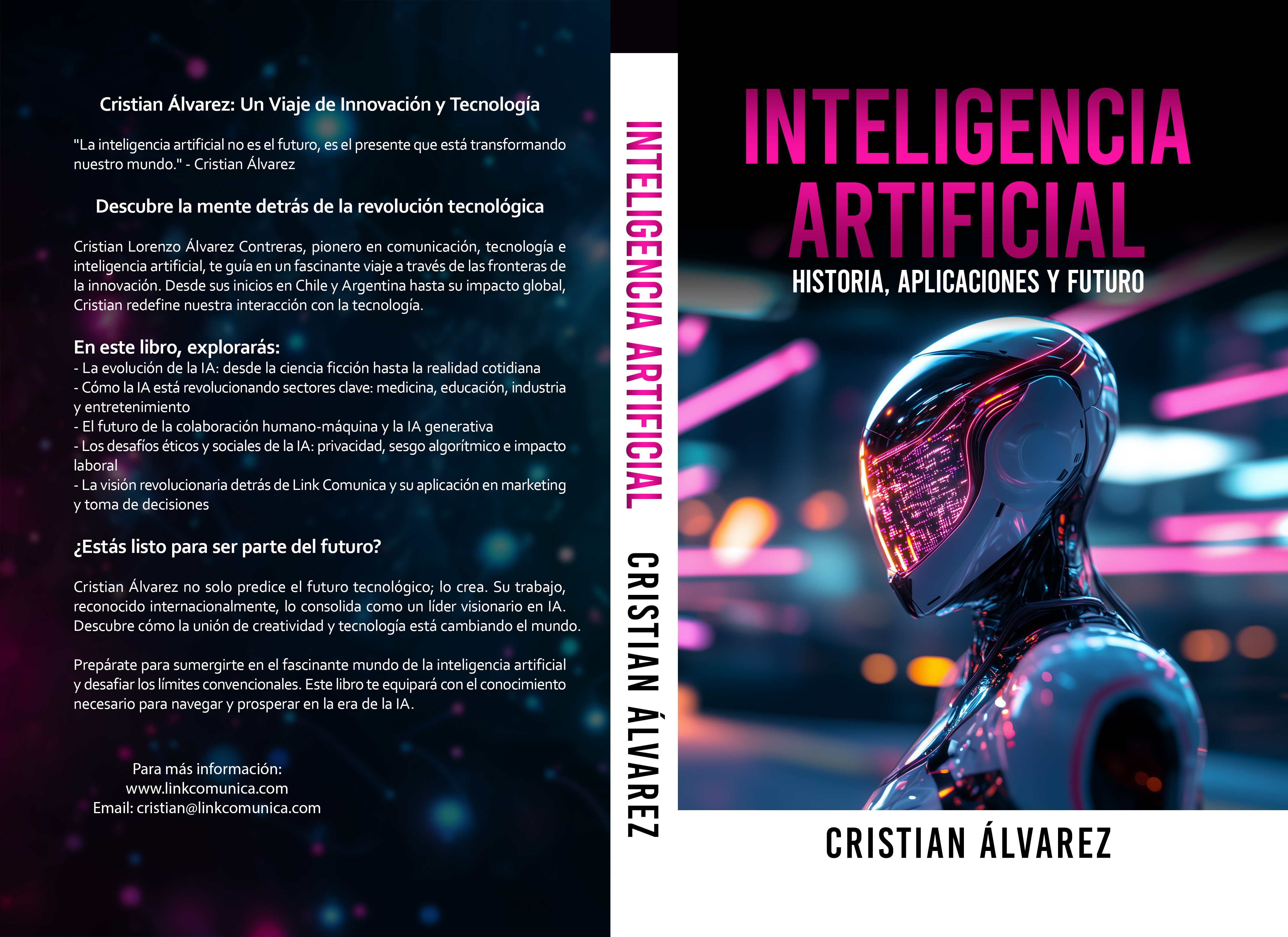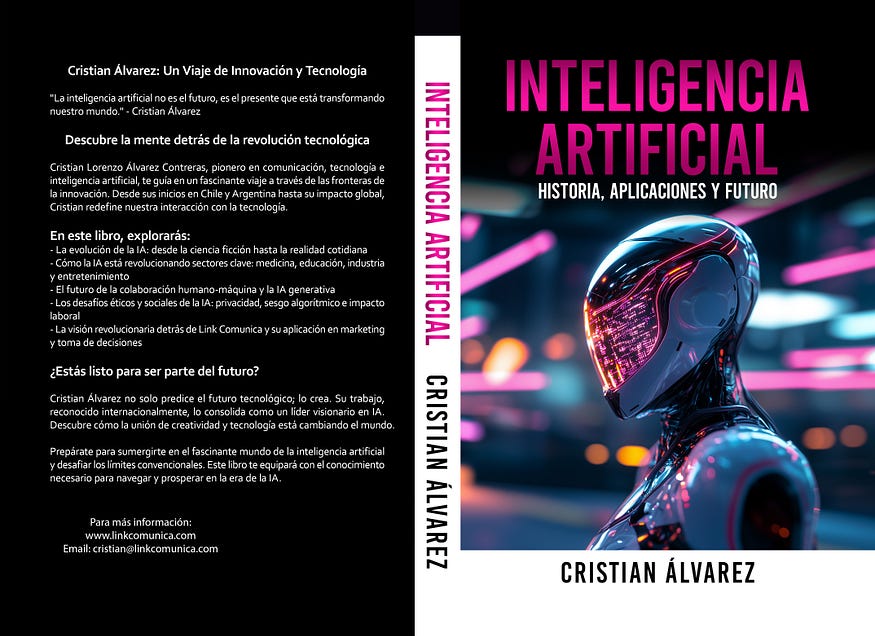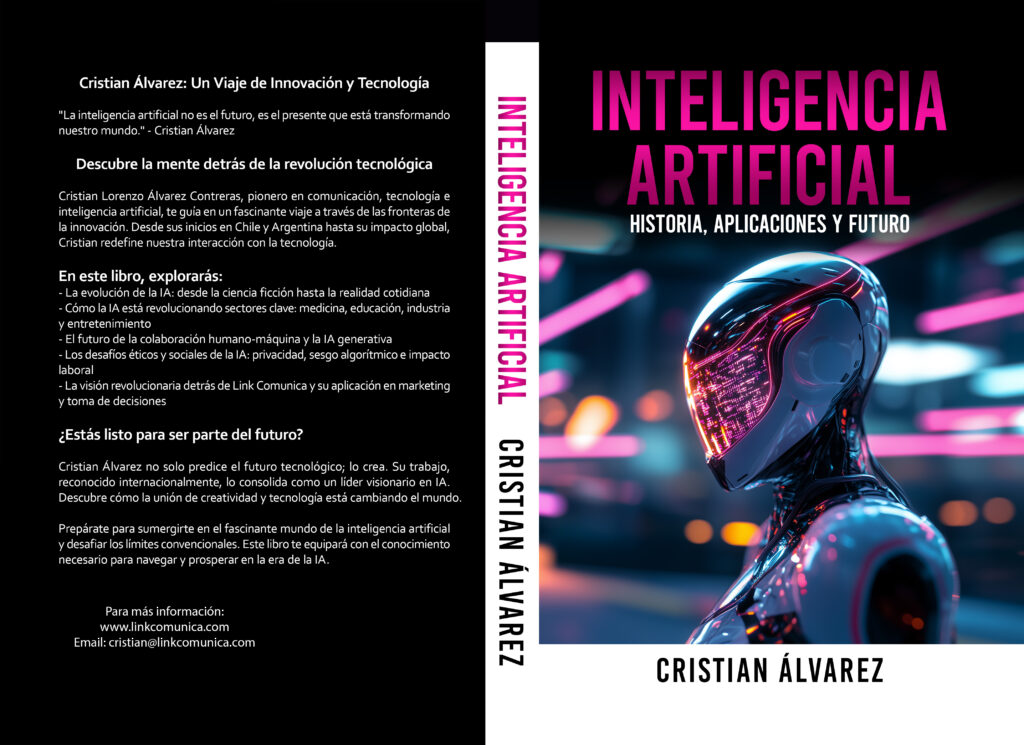
A Work to Understand the Present and Anticipate the Future: Cristian Álvarez Launches the Most Comprehensive Spanish-Language Book on Artificial IntelligenceBy the editorial team of Link Comunica

In the midst of an era marked by rapid changes, accelerated automation, and technological advances that challenge our everyday understanding, critical thinking and a humanistic vision have become undeniably relevant. It is in this context that a key work emerges, deeply necessary, written with rigor, clarity, and a sense of purpose: Artificial Intelligence: History, Applications, and Future, the new book by Cristian Álvarez, CEO of Link Comunica, pioneer in AI in Latin America, expert in emerging technologies, and a recognized global communicator.

This book offers not just a reading, but a journey. A historical path that starts from the philosophical and mathematical origins that shaped artificial intelligence, and then pauses at its most decisive stages: from the first computer simulations to the explosion of machine learning, generative models, and the ethical challenges that are now shaking legislators, educators, scientists, and citizens worldwide.
A Bridge Between History, Education, and Technological Present
Cristian Álvarez is not just any technologist. Over two decades, he has been at the center of digital transformation processes in multiple countries, leading strategic developments with global impact. His approach is unique because he does not separate technology from humanity, nor history from the future. This book is a testament to that integrative, multidisciplinary, and critical vision.
“This is not a book for experts, but for everyone who wants to understand what is happening and why it is important to actively participate in this global conversation,” states the author in the preface. And he succeeds: with an engaging narrative and a clear pedagogical structure, the work draws lines that allow the reader to understand the technical foundations of artificial intelligence without losing sight of its social, cultural, and economic impact.
From the pioneering experiments of Turing, McCarthy, and Minsky to current debates on ChatGPT, recommendation algorithms, algorithmic biases, and the urgent need for regulatory frameworks, the reader will find here not only answers but also relevant questions that invite reflection and action.
A Latin American Vision for the World
The extraordinary aspect of this publication is also its perspective. In a field dominated by Anglo-Saxon voices, this book, written in Spanish, stands as one of the most complete, thoughtful, and ambitious works in the global publishing scene on artificial intelligence. Cristian Álvarez brings an original, plural, critical, and deeply informed perspective from Latin America.
However, this regional vision is not parochial: it is a view from the south of the world, with global projection. Because what the development of artificial intelligence has demonstrated is that its consequences know no borders. For this reason, this work invites everyone — from students to entrepreneurs, from teachers to public policy designers — to engage with a phenomenon that is redefining how we work, learn, communicate, and make decisions.

An Educational Tool and an Ethical Manifesto
Artificial Intelligence: History, Applications, and Future is also presented as an invaluable educational tool. It can be used as a core text in university courses, training workshops, public and corporate innovation spaces, and in schools aiming to foster critical digital literacy.
But beyond its formative value, the book is also an ethical manifesto. A statement on the need to responsibly harness the power of technology and build a more just, equitable, and conscious digital future.
“We still have time to design artificial intelligence for the service of life, the planet, cooperation, and collective well-being,” writes Álvarez in one of the most notable chapters of the work.
An International Launch with Global Projection
The book will be officially launched in late May 2025 and will be available in both physical and digital formats on global platforms. The launch event will include a tour of talks, interviews, master classes, and seminars to be held in various countries across Latin America, Europe, and the United States.
Already, specialized media, universities, and think tanks have begun to show interest in the publication. And rightfully so: it is an editorial milestone in the Spanish-speaking world, and one of the most anticipated books of the year in the fields of technology and education.
A Life Dedicated to Connecting Ideas, People, and Territories
Cristian Álvarez is not just the author of this work. He is a promoter of digital communities, a photographer who documents realities to design solutions, a social entrepreneur who has skillfully combined technology, communication, aesthetic sensitivity, and an educational vocation.
His career intersects with global campaigns, technological developments with impact on municipalities, and a vision for the future that blends innovation with humanism. As a digital nomad, he has lived and worked in multiple countries, always with the same purpose: to make technology a bridge, not a barrier.
The Book We Were Waiting For
Artificial Intelligence: History, Applications, and Future is not just a book. It is an invitation to understand the time we live in and imagine the future we want to build. It is, without a doubt, one of the most comprehensive works ever written in Spanish on this subject. And it is destined to occupy a privileged place in the libraries of those who, from anywhere in the world, understand that knowledge is the most powerful tool we have to transform reality.
For more information about the author, his projects, interviews, and upcoming publications, visit:
🔗 www.linkcomunica.com
📩 Contact: cristian@linkcomunica.com












